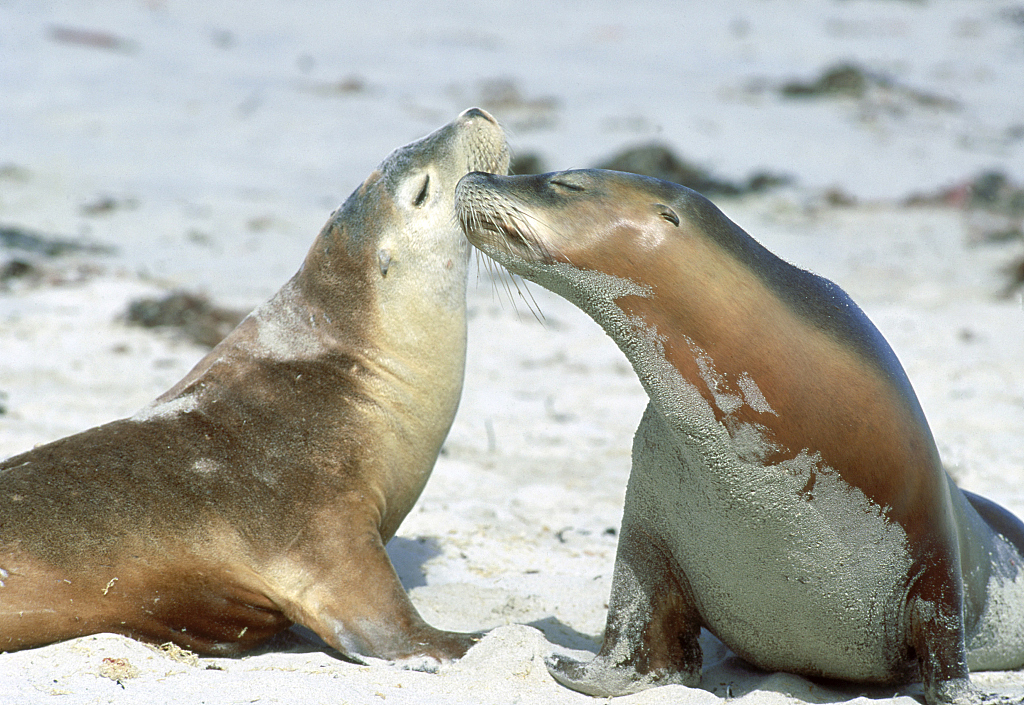Australian researchers are trialing a novel way of treating sea lion pups for hookworms, in the hope they can help populations of the endangered species recover.
Sea lions are a type of eared seal, native to areas across the Pacific, which in Australia have become infested with a devastating parasite called hookworm.
In an effort to bring the infestation under control, Dr. Rachael Gray, from the University of Sydney School of Veterinary Science is currently trialing a topical ointment which can be applied to the pup's fur, making for easier treatment.
The trial is taking place over two breeding seasons at Kangaroo Island, in the southern state of South Australia.

Australian sea lion. /VCG Photo
Australian sea lion. /VCG Photo
"Hookworm infects the intestines of 100 percent of the Australian sea lion pups, leaving them weak, anaemic and with blood in their faeces. Many pups die directly from the hookworm," Gray said.
"Our team has previously shown that an injectable form of hookworm treatment is effective, but we have recently piloted a topical treatment of the anti-parasitic drug ivermectin, which is easy to apply on the skin of the sea lion pups, and found that it is just as effective as the injectable form at treating hookworm," Gray said.
The trial involves the monitoring of 180 pups to see how the treatment not only improves their health and growth, but also survival to breeding adult as part of a longer-term study.
"The Australian sea lion is an endangered species, in part due to historical sealing in the 19th century, where whole colonies were wiped out. The numbers of Australian sea lions haven't recovered since humans ceased hunting them and numbers are actually declining," Gray said.
"We're looking at how eliminating hookworm can increase survival from other factors that are also killing sea lion pups, such as accidental injury from adults and the impacts of pollution. A system weakened by hookworm makes the sea lions more vulnerable to all sorts of other factors that can kill them," she said.
(Cover image via VCG.)
(If you want to contribute and have specific expertise, please contact us at nature@cgtn.com.)
Source(s): Xinhua News Agency